Search
Search Results
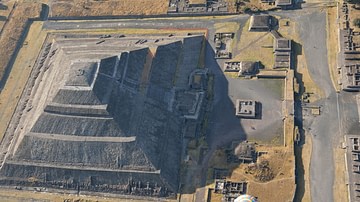
Definition
Teotihuacan
Teotihuacan, located in the Basin of Central Mexico, was the largest, most influential, and most revered city in the history of the New World. It flourished in Mesoamerica's Golden Age, the Classic Period of the first millennium CE. Dominated...
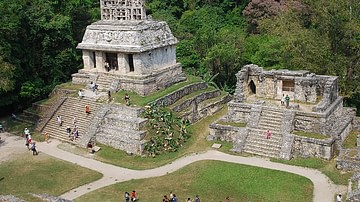
Article
Early Explorers of the Maya Civilization: From Aguilar to Waldek
Although John Lloyd Stephens and Frederick Catherwood are consistently credited with the `discovery' of the Maya Civilization, there were many who preceded them who sparked their interest in making their famous travels through Mesoamerica...
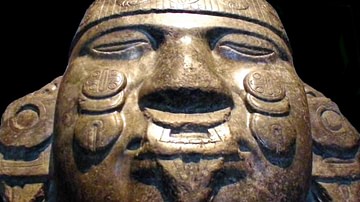
Definition
Aztec Art
The Aztec culture, centred at the capital of Tenochtitlan, dominated most of Mesoamerica in the 15th-16th centuries. With military conquest and trade expansion, the art of the Aztecs also spread, helping the Aztec civilization achieve a cultural...
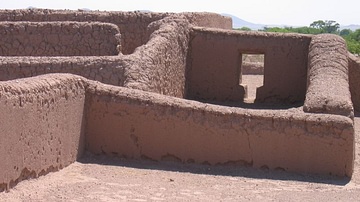
Definition
Casas Grandes
Casas Grandes or Paquimé was a major pre-Columbian city that flourished due to its extensive trading networks between c. 1150/1200-1450 CE in the northwest of present-day Chihuahua, Mexico. Casas Grandes is one of the largest and most important...
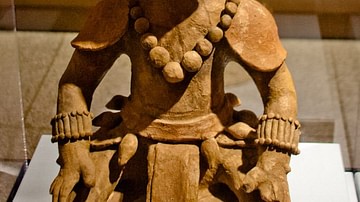
Definition
Maya Civilization
The Maya are an indigenous people of Mexico and Central America who have continuously inhabited the lands comprising modern-day Yucatan, Quintana Roo, Campeche, Tabasco, and Chiapas in Mexico and southward through Guatemala, Belize, El Salvador...
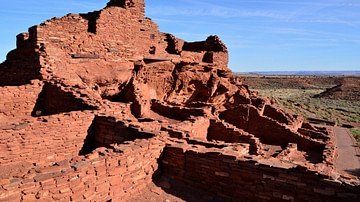
Interview
Interview: The Ancient Southwest
Pre-Columbian civilizations of the Southwestern United States and Northern Mexico include the Hohokam who occupied the US state of Arizona, the Anasazi or Ancestral Pueblo Peoples who resided in the Four Corners Region, and the Mogollon who...
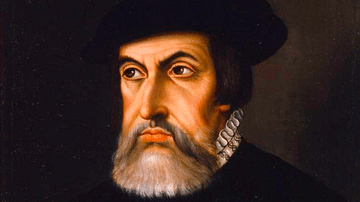
Definition
Hernán Cortés
Hernán Cortés (1485-1547) was a Spanish conquistador who led the conquest of the Aztec Empire in Mexico from 1519. Taking the Aztec capital of Tenochtitlan in 1521, Cortés plundered Mesoamerica as he became the first ruler of the new colony...
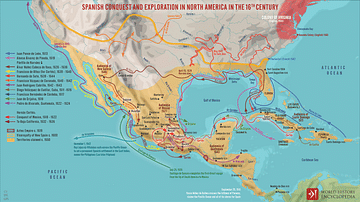
Article
The Changing Interpretation of the Spanish Conquest in the Americas
The fall in 1519 of Tenochtitlan, the capital of the Mexica or Aztec Empire, as it was later called, laid the foundation for the Spanish colonial empire on the North American mainland. It was the first time that Europeans had subjugated a...
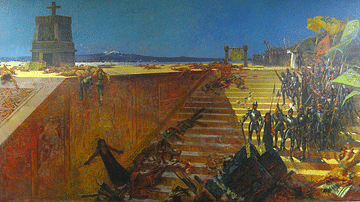
Article
The Fall of Tenochtitlan
The fall of Tenochtitlan on 13 August 1521 was a decisive moment in the dramatic collapse of the Aztec empire which had dominated Mesoamerica. Led by Hernán Cortés (1485-1547), the Spanish conquistadors enjoyed superior weapons and tactics...

Article
Dynamics of the Neolithic Revolution
The Neolithic Revolution began between 10,000 and 12,000 years ago at several widely dispersed locations across the world, when our ancestors first began planting and raising crops. Agricultural communities sprang up almost simultaneously...